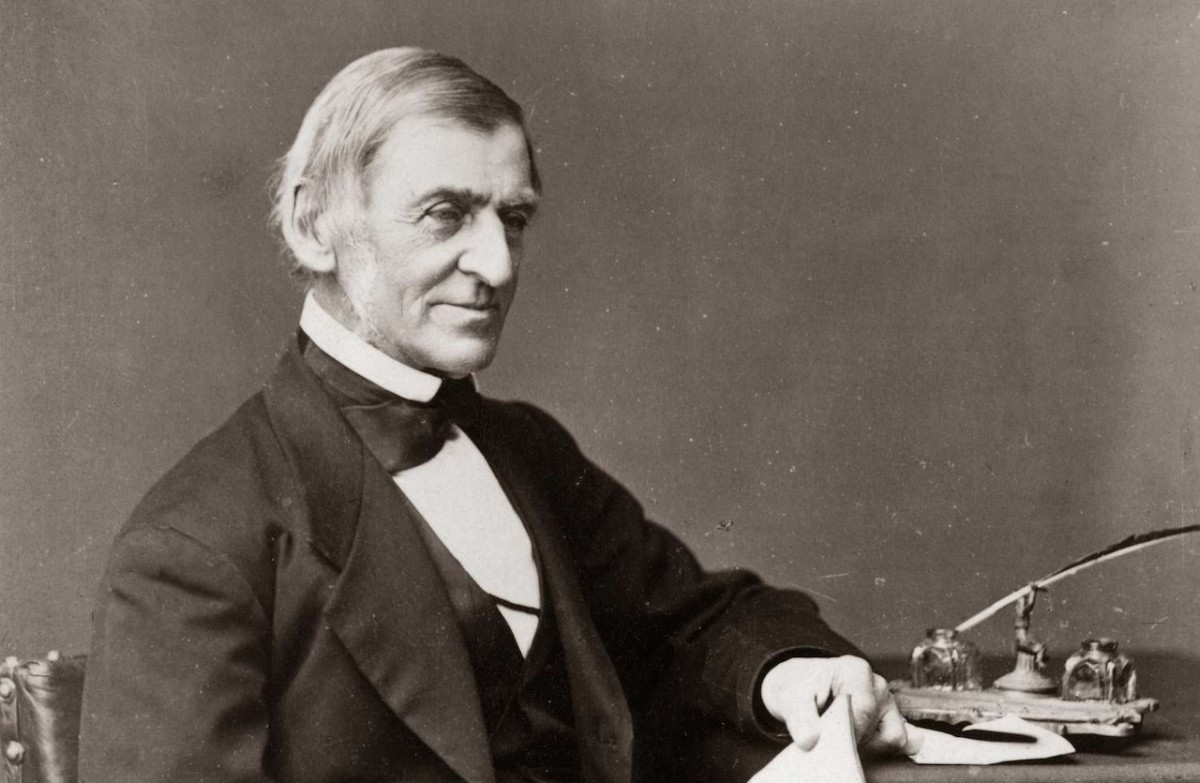Edgar Lee Masters’ "Griffy the Cooper"

Introduction and Text of "Griffy the Cooper"
In Edgar Lee Masters’ "Griffy the Cooper" from the American classic Spoon River Anthology, the speaker, known only as Griffy, expounds on his expertise as a maker of tubs, extending his knowledge to a supposed profound conclusion that because of societal moral restraints, living life is like a living in a tub.
While the speaker's metaphor is somewhat clever, it eventually falls flat because his attempt to give advice remains weak and ineffectual.
Griffy's premise that to escape the "tub" citizens should break societal "[t]aboos and rules" remains dangerously faulty. Such nonsense would ultimately lead to the penitentiary, the biggest "tub" of all.
This speaker apparently is unaware that to break out the societal prison, one must look within, not try to interfere with the very laws and rules that allow society to function.
Griffy is simply a name-calling lout, among the many others like him, trying to elevate his own worth by lessening that of others, as he spouts is pedestrian view of behavior.
Griffy the Cooper
The cooper should know about tubs.
But I learned about life as well,
And you who loiter around these graves
Think you know life.
You think your eye sweeps about a wide horizon, perhaps,
In truth you are only looking around the interior of your tub.
You cannot lift yourself to its rim
And see the outer world of things,
And at the same time see yourself.
You are submerged in the tub of yourself—
Taboos and rules and appearances,
Are the staves of your tub.
Break them and dispel the witchcraft
Of thinking your tub is life!
And that you know life!
Commentary on "Griffy the Cooper"
Griffy waxes philosophical about life from his experience as a cooper. But his thinking results in an unprincipled point of view. He shows himself to be weak as his diatribe remains trivial even nonsensical.
First Movement: What He Should Know About
The cooper should know about tubs.
But I learned about life as well,
And you who loiter around these graves
Think you know life.
Griffy begins by touting his own knowledge about what he should know and that is, of course, "about tubs." But he then begins his discourse on learning about life in addition to his expertise in tub-making.
Griffy then insults the folks who would come around "these graves" by calling them loiterers who think they know about life. But Griffy has some news for them, and he will show them that they do not know about life, but he does.
Second Movement: Inside Their Own Tub
You think your eye sweeps about a wide horizon, perhaps,
In truth you are only looking around the interior of your tub.
Griffy says to those who loiter about the graves that they think they see so widely "about a wide horizon," but in fact they are really only seeing the "interior of [their] tub."
A useful example would have added to Griffy's discourse, but then his offering such an example likely would have detracted from Griffy's intellectual bankruptcy. Thus Griffy's diatribe remains vague and hollow.
Third Movement: No True Frame of Reference
You cannot lift yourself to its rim
And see the outer world of things,
And at the same time see yourself.
So, with the metaphor established that all of the grave-loiterers are firmly ensconced in their own tub, Griffy explains that from that tub they cannot lift "[themselves] to its rim."
Because they cannot lift themselves, they cannot see what is actually happening outside of their tubs. He says they have no true frame of reference, because they cannot see "the outer world of things" and "at the same time see [themselves]."
At this point, Griffy has begun a useful analogy, but can he make it work for a useful conclusion?
Fourth Movement: A Tub of Rules
You are submerged in the tub of yourself—
Taboos and rules and appearances,
Are the staves of your tub.
According to Griffy, the people are "submerged in the tub of [themselves]." And societal rules, taboos, and outward appearances form the "staves of [their] tub." In other words, people are imprisoned by the very schema that allows a civilized society to function.
Maybe Griffy should have tried a little harder to see over the lip of his own tub before drawing conclusions that would hold less water than his tubs.
Fifth Movement: The Efficacy of Breaking Rules
Break them and dispel the witchcraft
Of thinking your tub is life!
And that you know life!
The bankruptcy of Griffy’s philosophy is conclusively revealed by his last proclamation. He simply commands his audience, that is, those loitering around the graves, to break those annoying "staves" and just stop thinking "your tub is life!"
That is Griffy's advice: "Break them and dispel the witchcraft / Of thinking your tub is life!" "Them" invariably includes all the laws that keep society functioning.
And. no doubt, while Griffy is referring to religious law as "witchcraft," he has no substantial knowledge about the history and purpose of the great world religions.
Griffy implores his listeners to stop thinking "that you know life!" Then what? He then puts a hold on his diatribe before he could fill out his philosophy and explain the consequences of his demands.
This state of affairs remains rather typical for the Spoon River inmates who are big on hot-air inflated rhetoric and small on truth and logic. The reader will assign Griffy to the category of pathetic blow-hards whose epitaphs reek of a pompous nihilism.

Related Edgar Lee Masters Information
- Life Sketch of Edgar Lee Masters Edgar Lee Masters’ American classic Spoon River Anthology brought the poet into the literary spotlight, and no other work from his extensive writings has attracted more attention, including his sequel to Spoon River The New Spoon River.
Commentaries on Edgar Lee Masters Poems
- Edgar Lee Masters’ "The Hill" The poem "The Hill" opens Edgar Lee Masters’ American classic Spoon River Anthology, which is told in a series of dramatic epitaphs by the deceased residents of Spoon River, an imaginary town in Illinois. The work might be considered a character study in poetry.
- Edgar Lee Masters’ "Hod Putt" Hod Putt considered himself a loser in life, but he envied those who were successful.
- Edgar Lee Masters’ "Fiddler Jones" and "Barney Hainsfeather" Fiddler Jones is one of the less melancholy figures of Spoon River, though he has his trials as well. Barney Hainsfeather's epitaph reveals a unique complaint of a man who laments being buried in the wrong cemetery.
- Edgar Lee Masters’ "Robert Fulton Tanner" Fulton is a pathetic character, who discovers that literally building a better mouse trap might only provide a cliché to fling at this thing vaguely called "Life."
The "Minerva Jones" Sequence
- "Minerva Jones" The "Minerva Jones" epitaph features one of the most depraved characters of the Spoon River talking dead. She is self-absorbed and haughty, lacking empathy and self-awareness, causing her to remain ignorant of her own discordant thoughts.
- "'Indignation' Jones" In the second epitaph of the "Minerva" series, the poetess’ father, "Indignation" Jones, fulminates against Spoon River society.
- "Doctor Meyers" The third epitaph in the Minerva Jones series features "Doctor Meyers," who performed the abortion that led to the death of the unfortunate poetess.
- "Mrs. Meyers" In the fourth epitaph in this series,"Mrs. Meyers," Dr. Meyers' wife testifies that her husband, whom she calls "poor soul," reaped what he sowed for his actions in life. The religious woman offers advice for a pleasant and peaceful life, reminding humanity to "Love God and keep his commandments."
- "'Butch' Weldy" The fifth and final epitaph "'Butch' Weldy" concludes the "Minerva" series. Butch declaims about his ordeal after a work related accident—with nary a nod to Minerva.
The Pantier Sequence
- "Benjamin Pantier" and "Mrs. Benjamin Pantier" Unbridled arrogance, overweening vanity along with cowardly weakness have combined to bring about the destruction of the marriage of Mr. and Mrs. Benjamin Pantier. The husband appears to be weakling allowing himself to be cowed by his wife, an arrogant bully.
- "Reuben Pantier" Reuben Pantier's colorful character helps dramatize the power of spiritual love for healing the mind, heart, and soul, even through the distance of miles and decades. Reuben is the son of the dysfunctional couple Mr. and Mrs. Benjamin Pantier.
- "Emily Sparks" The epitaph "Emily Sparks" in Edgar Lee Masters’ American classic Spoon River Anthology is the fourth entry in the sequence of five epitaphs featuring a dysfunctional couple, their son, and the latter’s influential mentor.
- "Trainor, the Druggist" Edgar Lee Masters’ "Trainor, the Druggist" from the American classic Spoon River Anthology offers a final installment covering the pitiful story of the Pantiers: Mr. and Mrs. Benjamin Pantier and their son Reuben.
This content is accurate and true to the best of the author’s knowledge and is not meant to substitute for formal and individualized advice from a qualified professional.
© 2025 Linda Sue Grimes





